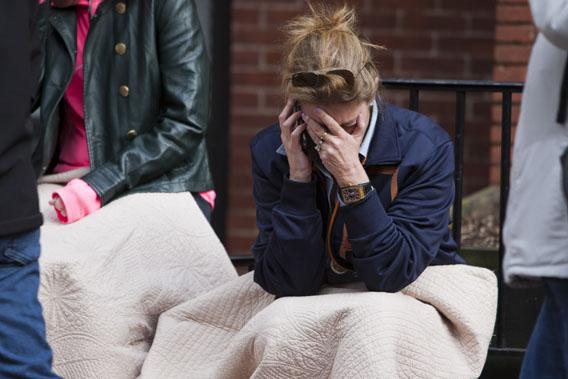After two bombs exploded at the finish line of the Boston Marathon on Monday, many Boston residents were unable to send or receive cellphone calls. Some believed cell networks were silenced to prevent the detonation of remote-control devices, but representatives from Sprint and Verizon denied that service was intentionally shut down. (Instead, a Sprint spokeswoman explained, the high volume of calls flowing in and out of the city had overloaded local cell towers.) Is there a procedure for turning off a cellphone network during a crisis?
Yes. While cell towers are privately owned by telephone companies, they are licensed by the federal government, which has the authority to silence them in an emergency. The National Communications System, a subdivision of the Department of Homeland Security, established a protocol for emergency interruptions in 2006, in the wake of a controversial shutdown in New York after the London subway bombings.
The process can begin when a state authority, such as a governor, makes a shutdown request to state homeland security advisers. These advisers, employees of an agency called the National Coordinating Center, evaluate the request; if it seems valid, they contact the cellphone carriers, which must temporarily dismantle the networks by shutting off their base stations.
On a smaller scale, local law enforcement agencies—including city bluecoats and transit authorities such as San Francisco’s BART or the Port Authority of New York and New Jersey—have access to devices that can jam signals over specific areas and block target phones. They do not need consent from telecom companies to use them, which has prompted some First Amendment scholars to wonder whether such disruptions compromise cellphone owners’ right to free speech. In 2011, BART shut down the wireless service in select San Francisco subway stations to stave off protests following the shooting of Charles Blair Hill by police. A civil liberties group, the Electronic Frontier Foundation, compared this to the government-mandated network shutdowns that swept across Egypt during the Arab Spring. “BART pulls a Mubarak in San Francisco,” the group tweeted. (Meanwhile, a BART spokesman defended the measure by invoking subway riders’ “constitutional right to safety.”)
As BuzzFeed reports, telecom companies have publicly expressed their backing for NCS’s emergency wireless protocols. Their trade organization, the CTIA, said in April 2012: “The development and implementation of [the shutdown process] involved substantial government and industry stakeholder participation, with the wireless industry supporting the procedures adopted.”
Got a question about today’s news? Ask the Explainer.
Explainer thanks Ladimer Nagurney of the University of Hartford.
Read more on Slate about the Boston Marathon bombing.
